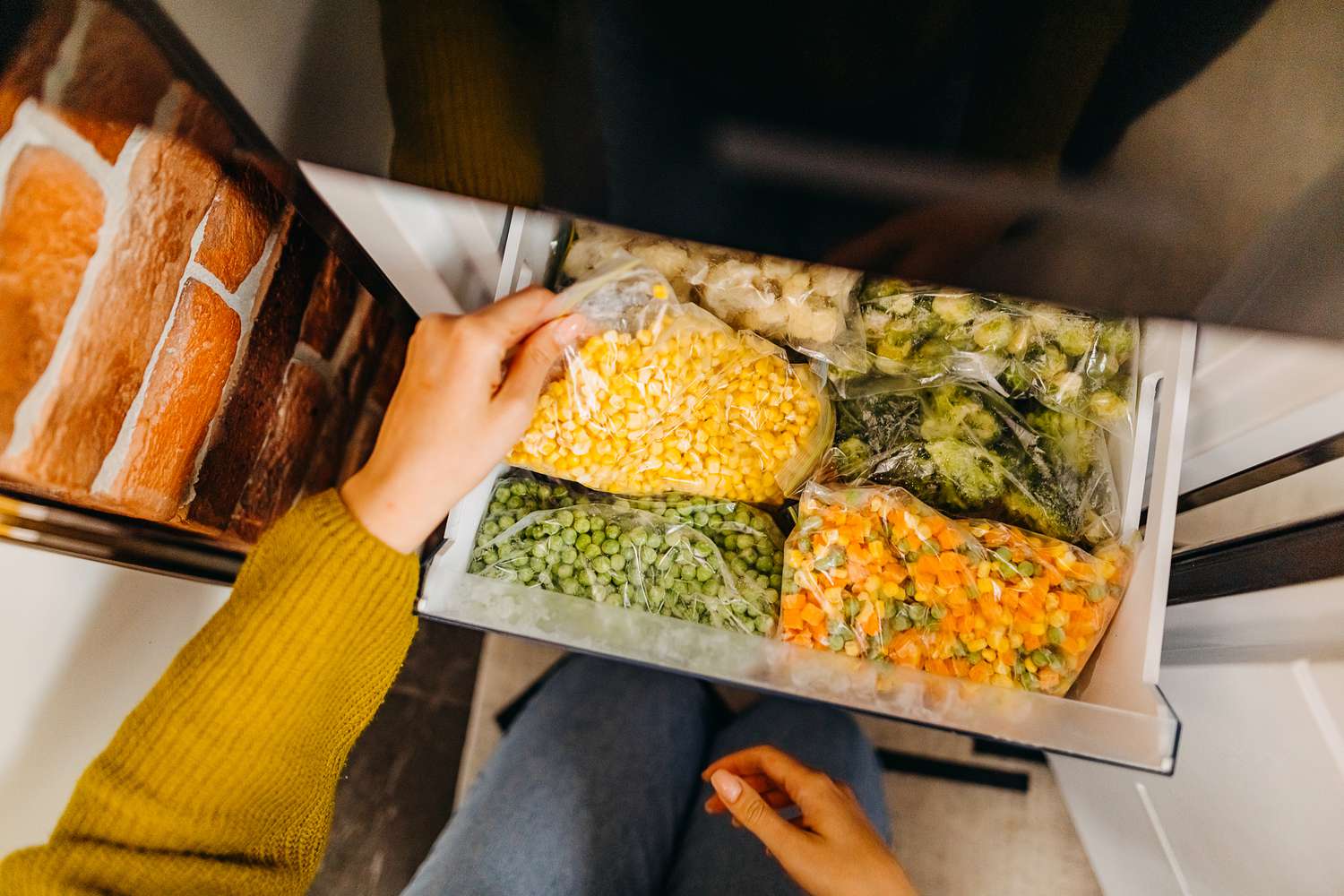Registered Dietitians Explain the Impact of Freezing on Nutritional Value of Food

The nutrition content of food can be impacted by the way it's stored.
Storing leftover grains like rice or pasta in the fridge can create resistant starch and enhance its health benefits. However, freezing food for reheating at a later time doesn't necessarily alter the food's nutritional value.
The United States Department of Agriculture (USDA) purports that freezer storage induces little change in nutritional content.
Nevertheless, whether freezing food modifies its nutritional content depends on the specific food and if it's blanched or cooked before freezing.
"The effect varies by food," says Kristin Kirkpatrick, MS, RD, a dietitian at the Cleveland Clinic. "Some foods exhibit enhanced bioavailability of nutrients when heat is applied (blanched or cooked before freezing), while others may be more nutritious in their raw state."
The formation of icy crystals when something is frozen may cause certain nutrients to be lost, according to Kelsey Costa, MS, RDN, a dietitian and nutrition consultant.
"These crystals can damage cell walls, leading to a minor loss of certain nutrients like vitamins C and B, which are water-soluble," she said.
Losses are generally marginal and further research is necessary to understand how the freezing of food might influence its nutritional content.
Here's how freezing may affect food, along with tips on freezing, defrosting, and reheating foods.
When done correctly, experts believe freezing food can retain nutritional content better than other preservation methods.
"The freezing process can, to some degree, preserve the nutrients in food by slowing down vitamin loss that would occur if the food were left at room temperature or refrigerated," explained Costa.
Flash freezing can be used for fruits and vegetables right after harvest to lock in nutrients. That being said, fresh produce might lose some nutrients during transportation to the stores, says Rahaf Al Bochi.
According to a comparison study on the nutrient content of fresh, fresh frozen, and fresh-stored fruits and vegetables, the study found no significant differences, and when differences were found, frozen produce frequently outperformed fresh-stored.
The study's authors stated that their findings challenge the common belief that fresh food is significantly more nutritious than its frozen equivalents.
The optimal reheating methods for frozen foods are steaming, microwaving, stir-frying, or air frying, according to Al Bochi.
"Steaming is preferable to boiling as it prevents water-soluble vitamins from leaching into the cooking water," said Costa.
Kirkpatrick references a study which found quicker defrosting methods such as microwaving retained more nutrients compared to longer boiling times. She emphasized the importance of the defrosting time, indicating that prolonged time can negatively impact nutrients.
Standard safety advice for freezing food include blanching vegetables before freezing, storing them at zero degrees Fahrenheit, and using all frozen food within the recommended storage time to maintain nutritional quality.
Frozen fruits and vegetables should ideally be consumed within 8 to 12 months for best quality, but keeping them in the freezer longer will not cause a food safety problem.
Costa insisted on the importance of abiding by the USDA's guidelines.
These guidelines recommend overwrapping the original packaging to stave off quality deterioration. Rapid freezing ensures food quality by preventing the formation of large, disruptive ice crystals.
It’s also worth noting that frozen foods should be immediately put in the freezer once you’re home from the grocery store, Jill Roberts, PhD, an associate professor specializing in food safety at the University of South Florida College of Public Health, told Health.
She added that freshly prepared foods that you intend to freeze should be frozen within two hours of preparation.




